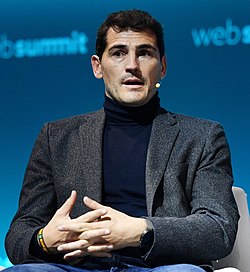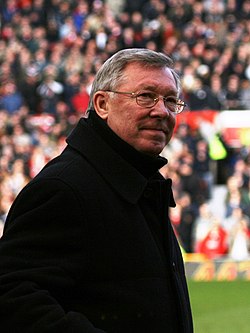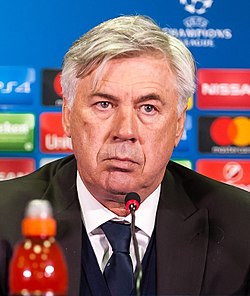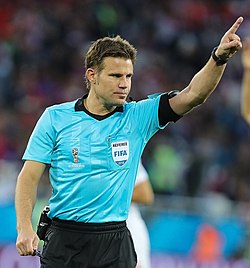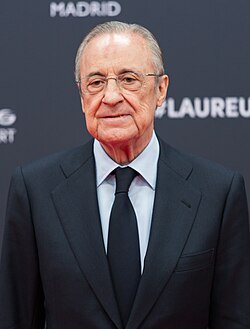| Nation | No. | Club | Seasons |
|---|
 Germany (15) Germany (15) | 29 | Bayern Munich | 1994–95 , 1997–98 , 1998–99 , 1999–2000 , 2000–01 , 2001–02 , 2002–03, 2003–04 , 2004–05 , 2005–06 , 2006–07 , 2008–09 , 2009–10 , 2010–11 , 2011–12 , 2012–13 , 2013–14 , 2014–15 , 2015–16 , 2016–17 , 2017–18 , 2018–19 , 2019–20 , 2020–21 , 2021–22 , 2022–23 , 2023–24 , 2024–25 , 2025–26 |
| 20 | Borussia Dortmund | 1995–96 , 1996–97 , 1997–98 , 1999–2000, 2001–02, 2002–03, 2011–12, 2012–13 , 2013–14 , 2014–15 , 2016–17 , 2017–18, 2018–19 , 2019–20 , 2020–21 , 2021–22, 2022–23 , 2023–24 , 2024–25 , 2025–26 |
| 15 | Bayer Leverkusen | 1997–98 , 1999–2000, 2000–01, 2001–02 , 2002–03, 2004–05 , 2011–12 , 2013–14 , 2014–15 , 2015–16, 2016–17 , 2019–20, 2022–23, 2024–25 , 2025–26 |
| 8 | Schalke 04 | 2001–02, 2005–06, 2007–08 , 2010–11 , 2012–13 , 2013–14 , 2014–15 , 2018–19 |
| 7 | Werder Bremen | 1993–94, 2004–05 , 2005–06 , 2006–07, 2007–08, 2008–09, 2010–11 |
| 7 | RB Leipzig | 2017–18, 2019–20 , 2020–21 , 2021–22, 2022–23 , 2023–24 , 2024–25 |
| 4 | VfB Stuttgart | 2003–04 , 2007–08, 2009–10 , 2024–25 |
| 3 | Borussia Mönchengladbach | 2015–16, 2016–17, 2020–21 |
| 3 | VfL Wolfsburg | 2009–10, 2015–16 , 2021–22 |
| 2 | Hamburger SV | 2000–01, 2006–07 |
| 2 | Eintracht Frankfurt | 2022–23 , 2025–26 |
| 1 | 1. FC Kaiserslautern | 1998–99 |
| 1 | Hertha BSC | 1999–2000 |
| 1 | TSG Hoffenheim | 2018–19 |
| 1 | Union Berlin | 2023–24 |
 Spain (14) Spain (14) | 30 | Barcelona | 1993–94 , 1994–95 , 1997–98, 1998–99, 1999–2000 , 2000–01, 2001–02 , 2002–03 , 2004–05 , 2005–06 , 2006–07 , 2007–08 , 2008–09 , 2009–10 , 2010–11 , 2011–12 , 2012–13 , 2013–14 , 2014–15 , 2015–16 , 2016–17 , 2017–18 , 2018–19 , 2019–20 , 2020–21 , 2021–22, 2022–23, 2023–24 , 2024–25 , 2025–26 |
| 30 | Real Madrid | 1995–96 , 1997–98 , 1998–99 , 1999–2000 , 2000–01 , 2001–02 , 2002–03 , 2003–04 , 2004–05 , 2005–06 , 2006–07 , 2007–08 , 2008–09 , 2009–10 , 2010–11 , 2011–12 , 2012–13 , 2013–14 , 2014–15 , 2015–16 , 2016–17 , 2017–18 , 2018–19 , 2019–20 , 2020–21 , 2021–22 , 2022–23 , 2023–24 , 2024–25 , 2025–26 |
| 16 | Atlético Madrid | 1996–97 , 2008–09 , 2009–10, 2013–14 , 2014–15 , 2015–16 , 2016–17 , 2017–18, 2018–19 , 2019–20 , 2020–21 , 2021–22 , 2022–23, 2023–24 , 2024–25 , 2025–26 |
| 12 | Valencia | 1999–2000 , 2000–01 , 2002–03 , 2004–05, 2006–07 , 2007–08, 2010–11 , 2011–12, 2012–13 , 2015–16, 2018–19, 2019–20 |
| 9 | Sevilla | 2007–08 , 2009–10 , 2015–16, 2016–17 , 2017–18 , 2020–21 , 2021–22, 2022–23, 2023–24 |
| 5 | Deportivo La Coruña | 2000–01 , 2001–02 , 2002–03, 2003–04 , 2004–05 |
| 5 | Villarreal | 2005–06 , 2008–09 , 2011–12, 2021–22 , 2025–26 |
| 3 | Real Sociedad | 2003–04 , 2013–14, 2023–24 |
| 3 | Athletic Bilbao | 1998–99, 2014–15, 2025–26 |
| 1 | Mallorca | 2001–02 |
| 1 | Celta Vigo | 2003–04 |
| 1 | Real Betis | 2005–06 |
| 1 | Málaga | 2012–13 |
| 1 | Girona | 2024–25 |
 France (12) France (12) | 18 | Paris Saint-Germain | 1994–95 , 1997–98, 2000–01, 2004–05, 2012–13 , 2013–14 , 2014–15 , 2015–16 , 2016–17 , 2017–18 , 2018–19 , 2019–20 , 2020–21 , 2021–22 , 2022–23 , 2023–24 , 2024–25 , 2025–26 |
| 16 | Lyon | 2000–01, 2001–02, 2002–03, 2003–04 , 2004–05 , 2005–06 , 2006–07 , 2007–08 , 2008–09 , 2009–10 , 2010–11 , 2011–12 , 2015–16, 2016–17, 2018–19 , 2019–20 |
| 12 | Marseille | 1992–93 , 1999–2000, 2003–04, 2007–08, 2008–09, 2009–10, 2010–11 , 2011–12 , 2013–14, 2020–21, 2022–23, 2025–26 |
| 11 | Monaco | 1993–94 , 1997–98 , 2000–01, 2003–04 , 2004–05 , 2014–15 , 2016–17 , 2017–18, 2018–19, 2024–25, 2025–26 |
| 8 | Lille | 2001–02, 2005–06, 2006–07 , 2011–12, 2012–13, 2019–20, 2021–22 , 2024–25 |
| 4 | Bordeaux | 1999–2000, 2006–07, 2008–09, 2009–10 |
| 3 | Auxerre | 1996–97 , 2002–03, 2010–11 |
| 3 | Lens | 1998–99, 2002–03, 2023–24 |
| 2 | Nantes | 1995–96 , 2001–02 |
| 1 | Montpellier | 2012–13 |
| 1 | Rennes | 2020–21 |
| 1 | Brest | 2024–25 |
 England (11) England (11) | 25 | Manchester United | 1994–95, 1996–97 , 1997–98 , 1998–99 , 1999–2000 , 2000–01 , 2001–02 , 2002–03 , 2003–04 , 2004–05 , 2005–06, 2006–07 , 2007–08 , 2008–09 , 2009–10 , 2010–11 , 2011–12, 2012–13 , 2013–14 , 2015–16, 2017–18 , 2018–19 , 2020–21, 2021–22 , 2023–24 |
| 22 | Arsenal | 1998–99, 1999–2000, 2000–01 , 2001–02, 2002–03, 2003–04 , 2004–05 , 2005–06 , 2006–07 , 2007–08 , 2008–09 , 2009–10 , 2010–11 , 2011–12 , 2012–13 , 2013–14 , 2014–15 , 2015–16 , 2016–17 , 2023–24 , 2024–25 , 2025–26 |
| 20 | Chelsea | 1999–2000 , 2003–04 , 2004–05 , 2005–06 , 2006–07 , 2007–08 , 2008–09 , 2009–10 , 2010–11 , 2011–12 , 2012–13, 2013–14 , 2014–15 , 2015–16 , 2017–18 , 2019–20 , 2020–21 , 2021–22 , 2022–23 , 2025–26 |
| 17 | Liverpool | 2001–02 , 2002–03, 2004–05 , 2005–06 , 2006–07 , 2007–08 , 2008–09 , 2009–10, 2014–15, 2017–18 , 2018–19 , 2019–20 , 2020–21 , 2021–22 , 2022–23 , 2024–25 , 2025–26 |
| 15 | Manchester City | 2011–12, 2012–13, 2013–14 , 2014–15 , 2015–16 , 2016–17 , 2017–18 , 2018–19 , 2019–20 , 2020–21 , 2021–22 , 2022–23 , 2023–24 , 2024–25, 2025–26 |
| 7 | Tottenham Hotspur | 2010–11 , 2016–17, 2017–18 , 2018–19 , 2019–20 , 2022–23 , 2025–26 |
| 4 | Newcastle United | 1997–98, 2002–03, 2023–24, 2025–26 |
| 1 | Blackburn Rovers | 1995–96 |
| 1 | Leeds United | 2000–01 |
| 1 | Leicester City | 2016–17 |
| 1 | Aston Villa | 2024–25 |
 Italy (11) Italy (11) | 25 | Juventus | 1995–96 , 1996–97 , 1997–98 , 1998–99 , 2000–01, 2001–02, 2002–03 , 2003–04 , 2004–05 , 2005–06 , 2008–09 , 2009–10, 2012–13 , 2013–14, 2014–15 , 2015–16 , 2016–17 , 2017–18 , 2018–19 , 2019–20 , 2020–21 , 2021–22 , 2022–23, 2024–25, 2025–26 |
| 21 | Milan | 1992–93 , 1993–94 , 1994–95 , 1996–97, 1999–2000, 2000–01, 2002–03 , 2003–04 , 2004–05 , 2005–06 , 2006–07 , 2007–08 , 2009–10 , 2010–11 , 2011–12 , 2012–13 , 2013–14 , 2021–22, 2022–23 , 2023–24, 2024–25 |
| 19 | Inter Milan | 1998–99 , 2002–03 , 2003–04, 2004–05 , 2005–06 , 2006–07 , 2007–08 , 2008–09 , 2009–10 , 2010–11 , 2011–12 , 2018–19, 2019–20, 2020–21, 2021–22 , 2022–23 , 2023–24 , 2024–25 , 2025–26 |
| 11 | Roma | 2001–02, 2002–03, 2004–05, 2006–07 , 2007–08 , 2008–09 , 2010–11 , 2014–15, 2015–16 , 2017–18 , 2018–19 |
| 9 | Napoli | 2011–12 , 2013–14, 2016–17 , 2017–18, 2018–19, 2019–20 , 2022–23 , 2023–24 , 2025–26 |
| 7 | Lazio | 1999–2000 , 2000–01, 2001–02, 2003–04, 2007–08, 2020–21 , 2023–24 |
| 5 | Atalanta | 2019–20 , 2020–21 , 2021–22, 2024–25, 2025–26 |
| 3 | Fiorentina | 1999–2000, 2008–09, 2009–10 |
| 1 | Parma | 1997–98 |
| 1 | Udinese | 2005–06 |
| 1 | Bologna | 2024–25 |
 Belgium (8) Belgium (8) | 12 | Anderlecht | 1993–94, 1994–95, 2000–01, 2001–02, 2003–04, 2004–05, 2005–06, 2006–07, 2012–13, 2013–14, 2014–15, 2017–18 |
| 12 | Club Brugge | 1992–93, 2002–03, 2003–04, 2005–06, 2016–17, 2018–19, 2019–20, 2020–21, 2021–22, 2022–23 , 2024–25 , 2025–26 |
| 3 | Genk | 2002–03, 2011–12, 2019–20 |
| 1 | Lierse | 1997–98 |
| 1 | Standard Liège | 2009–10 |
| 1 | Gent | 2015–16 |
| 1 | Antwerp | 2023–24 |
| 1 | Union Saint-Gilloise | 2025–26 |
 Netherlands (7) Netherlands (7) | 19 | Ajax | 1994–95 , 1995–96 , 1996–97 , 1998–99, 2002–03 , 2003–04, 2004–05, 2005–06 , 2010–11, 2011–12, 2012–13, 2013–14, 2014–15, 2018–19 , 2019–20, 2020–21, 2021–22 , 2022–23, 2025–26 |
| 19 | PSV Eindhoven | 1992–93, 1997–98, 1998–99, 1999–2000, 2000–01, 2001–02, 2002–03, 2003–04, 2004–05 , 2005–06 , 2006–07 , 2007–08, 2008–09, 2015–16 , 2016–17, 2018–19, 2023–24 , 2024–25 , 2025–26 |
| 7 | Feyenoord | 1997–98, 1999–2000, 2001–02, 2002–03, 2017–18, 2023–24, 2024–25 |
| 1 | Willem II | 1999–2000 |
| 1 | Heerenveen | 2000–01 |
| 1 | AZ | 2009–10 |
| 1 | Twente | 2010–11 |
 Russia (7) Russia (7) | 12 | Spartak Moscow | 1993–94, 1994–95, 1995–96 , 1998–99, 1999–2000, 2000–01, 2001–02, 2002–03, 2006–07, 2010–11, 2012–13, 2017–18 |
| 12 | CSKA Moscow | 1992–93, 2004–05, 2006–07, 2007–08, 2009–10 , 2011–12 , 2013–14, 2014–15, 2015–16, 2016–17, 2017–18, 2018–19 |
| 9 | Zenit Saint Petersburg | 2008–09, 2011–12 , 2012–13, 2013–14 , 2014–15, 2015–16 , 2019–20, 2020–21, 2021–22 |
| 6 | Lokomotiv Moscow | 2001–02, 2002–03, 2003–04 , 2018–19, 2019–20, 2020–21 |
| 2 | Rubin Kazan | 2009–10, 2010–11 |
| 1 | Rostov | 2016–17 |
| 1 | Krasnodar | 2020–21 |
 Turkey (6) Turkey (6) | 18 | Galatasaray | 1993–94, 1994–95, 1997–98, 1998–99, 1999–2000, 2000–01 , 2001–02, 2002–03, 2003–04, 2006–07, 2012–13 , 2013–14 , 2014–15, 2015–16, 2018–19, 2019–20, 2023–24, 2025–26 |
| 8 | Beşiktaş | 1997–98, 2000–01, 2003–04, 2007–08, 2009–10, 2016–17, 2017–18 , 2021–22 |
| 6 | Fenerbahçe | 1996–97, 2001–02, 2004–05, 2005–06, 2007–08 , 2008–09 |
| 1 | Bursaspor | 2010–11 |
| 1 | Trabzonspor | 2011–12 |
| 1 | İstanbul Başakşehir | 2020–21 |
 Portugal (5) Portugal (5) | 27 | Porto | 1992–93, 1993–94 , 1995–96, 1996–97 , 1997–98, 1998–99, 1999–2000 , 2001–02, 2003–04 , 2004–05 , 2005–06, 2006–07 , 2007–08 , 2008–09 , 2009–10 , 2011–12, 2012–13 , 2013–14, 2014–15 , 2015–16, 2016–17 , 2017–18 , 2018–19 , 2020–21 , 2021–22, 2022–23 , 2023–24 |
| 20 | Benfica | 1994–95 , 1998–99, 2005–06 , 2006–07, 2007–08, 2010–11, 2011–12 , 2012–13, 2013–14, 2014–15, 2015–16 , 2016–17 , 2017–18, 2018–19, 2019–20, 2021–22 , 2022–23 , 2023–24, 2024–25 , 2025–26 |
| 12 | Sporting CP | 1997–98, 2000–01, 2006–07, 2007–08, 2008–09 , 2014–15, 2016–17, 2017–18, 2021–22 , 2022–23, 2024–25, 2025–26 |
| 3 | Braga | 2010–11, 2012–13, 2023–24 |
| 2 | Boavista | 1999–2000, 2001–02 |
 Switzerland (5) Switzerland (5) | 8 | Basel | 2002–03, 2008–09, 2010–11, 2011–12 , 2013–14, 2014–15 , 2016–17, 2017–18 |
| 4 | Young Boys | 2018–19, 2021–22, 2023–24, 2024–25 |
| 2 | Grasshopper | 1995–96, 1996–97 |
| 1 | Thun | 2005–06 |
| 1 | Zürich | 2009–10 |
 Denmark (5) Denmark (5) | 7 | Copenhagen | 2006–07, 2010–11 , 2013–14, 2016–17, 2022–23, 2023–24 , 2025–26 |
| 2 | Aalborg | 1995–96, 2008–09 |
| 1 | Brøndby | 1998–99 |
| 1 | Nordsjælland | 2012–13 |
| 1 | Midtjylland | 2020–21 |
 Austria (4) Austria (4) | 7 | Red Bull Salzburg | 1994–95, 2019–20, 2020–21, 2021–22 , 2022–23, 2023–24, 2024–25 |
| 4 | Sturm Graz | 1998–99, 1999–2000, 2000–01, 2024–25 |
| 2 | Rapid Wien | 1996–97, 2005–06 |
| 1 | Austria Wien | 2013–14 |
 Romania (4) Romania (4) | 7 | FCSB | 1994–95, 1995–96, 1996–97, 2006–07, 2007–08, 2008–09, 2013–14 |
| 3 | CFR Cluj | 2008–09, 2010–11, 2012–13 |
| 1 | Unirea Urziceni | 2009–10 |
| 1 | Oțelul Galați | 2011–12 |
 Sweden (4) Sweden (4) | 4 | IFK Göteborg | 1992–93, 1994–95 , 1996–97, 1997–98 |
| 3 | Malmö FF | 2014–15, 2015–16, 2021–22 |
| 1 | AIK | 1999–2000 |
| 1 | Helsingborgs IF | 2000–01 |
 Slovakia (4) Slovakia (4) | 1 | Košice | 1997–98 |
| 1 | Petržalka | 2005–06 |
| 1 | Žilina | 2010–11 |
| 1 | Slovan Bratislava | 2024–25 |
 Greece (3) Greece (3) | 21 | Olympiacos | 1997–98, 1998–99 , 1999–2000, 2000–01, 2001–02, 2002–03, 2003–04, 2004–05, 2005–06, 2006–07, 2007–08 , 2009–10 , 2011–12, 2012–13, 2013–14 , 2014–15, 2015–16, 2017–18, 2019–20, 2020–21, 2025–26 |
| 9 | Panathinaikos | 1995–96 , 1998–99, 2000–01, 2001–02 , 2003–04, 2004–05, 2005–06, 2008–09 , 2010–11 |
| 5 | AEK Athens | 1994–95, 2002–03, 2003–04, 2006–07, 2018–19 |
 Czech Republic (3) Czech Republic (3) | 8 | Sparta Prague | 1997–98, 1999–2000, 2000–01, 2001–02, 2003–04 , 2004–05, 2005–06, 2024–25 |
| 4 | Viktoria Plzeň | 2011–12, 2013–14, 2018–19, 2022–23 |
| 3 | Slavia Prague | 2007–08, 2019–20, 2025–26 |
 Norway (3) Norway (3) | 11 | Rosenborg | 1995–96, 1996–97 , 1997–98, 1998–99, 1999–2000, 2000–01, 2001–02, 2002–03, 2004–05, 2005–06, 2007–08 |
| 1 | Molde | 1999–2000 |
| 1 | Bodø/Glimt | 2025–26 |
 Cyprus (3) Cyprus (3) | 4 | APOEL | 2009–10, 2011–12 , 2014–15, 2017–18 |
| 1 | Anorthosis | 2008–09 |
| 1 | Pafos | 2025–26 |
 Israel (3) Israel (3) | 3 | Maccabi Haifa | 2002–03, 2009–10, 2022–23 |
| 2 | Maccabi Tel Aviv | 2004–05, 2015–16 |
| 1 | Hapoel Tel Aviv | 2010–11 |
 Ukraine (2) Ukraine (2) | 19 | Shakhtar Donetsk | 2000–01, 2004–05, 2006–07, 2007–08, 2008–09, 2010–11 , 2011–12, 2012–13 , 2013–14, 2014–15 , 2015–16, 2017–18 , 2018–19, 2019–20, 2020–21, 2021–22, 2022–23, 2023–24, 2024–25 |
| 18 | Dynamo Kyiv | 1994–95, 1997–98 , 1998–99 , 1999–2000, 2000–01, 2001–02, 2002–03, 2003–04, 2004–05, 2006–07, 2007–08, 2008–09, 2009–10, 2012–13, 2015–16 , 2016–17, 2020–21, 2021–22 |
 Scotland (2) Scotland (2) | 13 | Celtic | 2001–02, 2003–04, 2004–05, 2006–07 , 2007–08 , 2008–09, 2012–13 , 2013–14, 2016–17, 2017–18, 2022–23, 2023–24, 2024–25 |
| 11 | Rangers | 1992–93, 1995–96, 1996–97, 1999–2000, 2000–01, 2003–04, 2005–06 , 2007–08, 2009–10, 2010–11, 2022–23 |
 Croatia (2) Croatia (2) | 9 | Dinamo Zagreb | 1998–99, 1999–2000, 2011–12, 2012–13, 2015–16, 2016–17, 2019–20, 2022–23, 2024–25 |
| 1 | Hajduk Split | 1994–95 |
 Serbia (2) Serbia (2) | 4 | Red Star Belgrade | 2018–19, 2019–20, 2023–24, 2024–25 |
| 2 | Partizan | 2003–04, 2010–11 |
 Poland (2) Poland (2) | 2 | Legia Warsaw | 1995–96 , 2016–17 |
| 1 | Widzew Łódź | 1996–97 |
 Bulgaria (2) Bulgaria (2) | 2 | Ludogorets Razgrad | 2014–15, 2016–17 |
| 1 | Levski Sofia | 2006–07 |
 Hungary (2) Hungary (2) | 2 | Ferencváros | 1995–96, 2020–21 |
| 1 | Debrecen | 2009–10 |
 Kazakhstan (2) Kazakhstan (2) | 1 | Astana | 2015–16 |
| 1 | Kairat | 2025–26 |
 Belarus (1) Belarus (1) | 5 | BATE Borisov | 2008–09, 2011–12, 2012–13, 2014–15, 2015–16 |
 Slovenia (1) Slovenia (1) | 3 | Maribor | 1999–2000, 2014–15, 2017–18 |
 Azerbaijan (1) Azerbaijan (1) | 2 | Qarabağ | 2017–18, 2025–26 |
 Finland (1) Finland (1) | 1 | HJK | 1998–99 |
 Moldova (1) Moldova (1) | 1 | Sheriff Tiraspol | 2021–22 |















